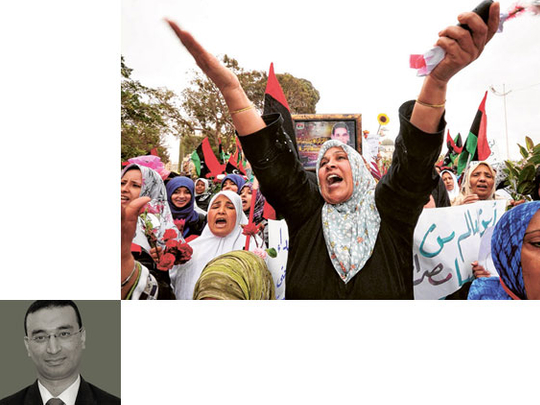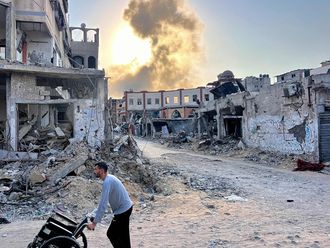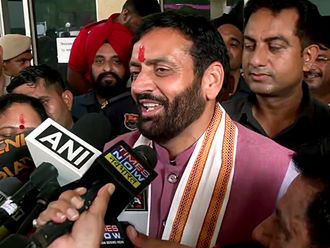
Most western countries and analysts viewed the Arab Spring uprising especially in Egypt and Tunisia as a fight for freedom and democracy. In fact, it was a movement by the people against inequality of wealth distribution. Yes, political and economic themes were clearly behind the uprising but there is no doubt that environmental issues were also at the heart of these uprisings.
If the Arab Spring was simply a democracy-dictatorship fight, it would not have spread to the UK, US, Spain, Greece and many other countries across the world.
Obviously, it would be incorrect to interpret it only from a political or economic viewpoint. What drove people to the streets were demands for a better quality of life, freedom, democracy and also rampant corruption, related to utilisation of natural resources and rising unemployment. Even in the US, which enjoys a mature democracy, Occupy Wall Street protest is against unequal wealth distribution.
The right to natural resources is a core element in many constitutions around the world. It emphasises that the government should allow the sustainable utilisation, management and protection of the environment and natural resources and fair sharing of benefits between the people.
Also, it is the duty of the authorities to assign the task of utilising any natural resource to the most efficient, honest person or company, in order to guarantee that it is not depleted or cause damage to the people and environment itself.
This environmental justice concept aims at achieving social equity as there is a strong link between environmental quality and social equity. Any environmental degradation leads to injustice, poor quality of life, health hazards, etc. After all, the poor suffer most from such environmental degradation.
In Libya, for instance, Muammar Gaddafi kept his country underdeveloped and deprived of its natural resource - oil wealth - for 42 years. So, despite its large natural resources, Libya failed to offer its people sufficient education, health care, job opportunities, and other basic services.
The Libyan society wanted equity, justice and fair distribution of wealth besides freedom and democracy, so they took to the streets demonstrating and then the regime forced them to fight for it. In Egypt, it was even clearer that environmental and resource-related issues were at the very core of the revolution, as many of the policy decisions of the regime had come to fuel popular discontent.
Environmental themes during the Egyptian revolution were a ‘hibernating phenomena', i.e. a negative trend, that led to the uprisings. Protesters addressed many environmental problems, such as carcinogenic pesticides, water pollution, the Nile issue and land grabbing
A core problem, was what people perceived the government sale of natural gas to neighbouring Israel on ‘unusually favourable terms' (namely, a third of ‘the international price' under a long-term agreement signed in 2004) and despite rising domestic consumption — to have been a waste of the country's natural resources.
Underlying issues
Many signs and banners displayed during the protests earlier this year indicate that the regime had come to be viewed as culpable in squandering the country's precious natural resources.
A good example is the following: "Leave, leave. You are the one who sold the land and the Nile"; "No for gas setback. Stop Egyptian natural gas exports. Stop the bleeding of Egypt's natural resources"; "‘No' to carcinogenic pesticides and fertilisers, ‘no' to polluted water resources, and ‘no' to the bulldozing of farmland".
The linkage between the revolution and the environment can also be seen in the actions taken by demonstrators. Immediately after former president Hosni Mubarak stepped down, youth campaigns were launched to clean, paint, and plant in streets and cities across the country. These and other acts of collective ‘environmental citizenship' were very important. They sent a clear signal to the authorities challenging the self-interested rational actor model that had pervaded official thinking and policies for decades and articulating the people's wider social interests and concerns.
It is clear that environmental issues were among the underlying causes of the current revolution and protests in many parts of the world.
Nowadays, people are concerned about eco-equity and the fair distribution of natural resources not only between different groups, districts, and governorates but between current and future generations as well. Natural resources (assets) are the real wealth of any nation. Natural assets are even more important than financial capital.
In this regard it has become clear that the world needs good environmental governance based on sustainability and social justice. This is the only way that governments all over the world can avoid unrest, uprising or conflict.
Dr Mohamed Abdel Raouf is an independent environmental researcher.








